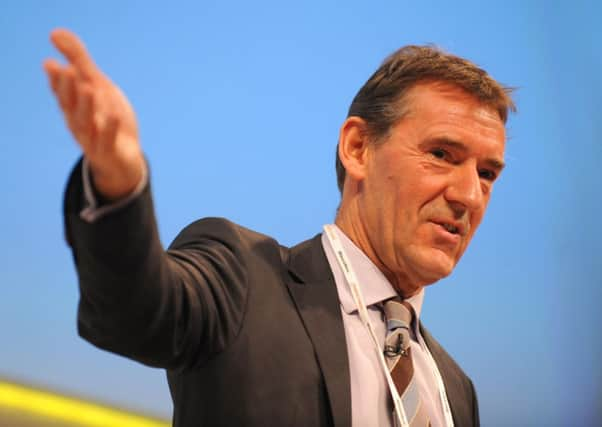Yorkshire must be at forefront of new devolution, senior banker tells Government


The study has claimed that both Leeds and Manchester should be put on the same footing as London in a push towards the devolution of power to metropolitan areas – called “Devo met” – to coincide with the passing of new powers to Holyrood following the Scottish independence referendum.
Former Goldman Sachs banker Jim O’Neill today hands over the findings of the City Growth Commission with a call for regional economies to be strengthened by the Government’s support for a series of key measures including an Oyster card for the North and letting bus and train passengers travel from Leeds to Manchester with one pass, alongside a plea for more work into a high speed train system which would act as a “Tube for the North”.
Advertisement
Hide AdAdvertisement
Hide AdExperts on the commission also challenged Ministers to emulate Singapore’s 1Gb/s broadband speeds in the near future for major metro areas. Another recommendation was for London-style planning powers to let city regions such as the Leeds area take charge of unused green belt sites.
And those areas which show the best leadership should be handed major new borrowing powers and a bigger say over local taxes. The commission maintains that while some areas have not yet shown enough leadership, West Yorkshire had and was as deserving of greater devolution as Greater Manchester.
Mr O’Neill, the respected economist who first identified the rising importance of Brazil, Russia and others in the BRIC economies, said there would be wider UK economic benefits of the Government handing over power to the seven million people in the “ManSheffLeedsPool” councils.
The Unleashing Metro Growth report concluded that by 2030, devolution has the potential to boost economic output in the UK’s 15 largest metros by £79bn per year – worth approximately five per cent of current GDP.
Advertisement
Hide AdAdvertisement
Hide AdMr O’Neill said: “The ambitious goal of the Commission was to think of specific recommendations to boost the trend growth rate of the UK economy. We conclude that bolder efforts to improve our infrastructure, both digitally but especially physically, are crucial for creating agglomeration.
“As I have become fond of saying, greater connectivity between ‘ManSheffLeedsPool’ and this seven million person region could start to see the level of scale we need for change.”
And on transport, the report added: “In the UK there are certain rail journeys that take longer to complete now than they did during the Victorian era, and connectivity between northern cities is a particular barrier.”
Leeds City Council leader Keith Wakefield welcomed the report, and said: “We have said all along that we need to be able to shape our own destiny rather than continue to be dictated to and held back by Whitehall, and these recommendations would enable us to make the major improvements we need.”
Advertisement
Hide AdAdvertisement
Hide AdHe added: “The debate over whether or not devolution should happen is over. Let’s get on and make it a reality and show that the confidence placed in us is more than justified to usher in a bright new future for the people of Leeds and the wider region.”
Also backing the report was Sheffield City Council’s cabinet member for business, Coun Leigh Bramall, who said: “There is no reason for us to accept the second class economic performance from our big cities that results from the overly centralised system currently in place.”
Comment: Page 12.